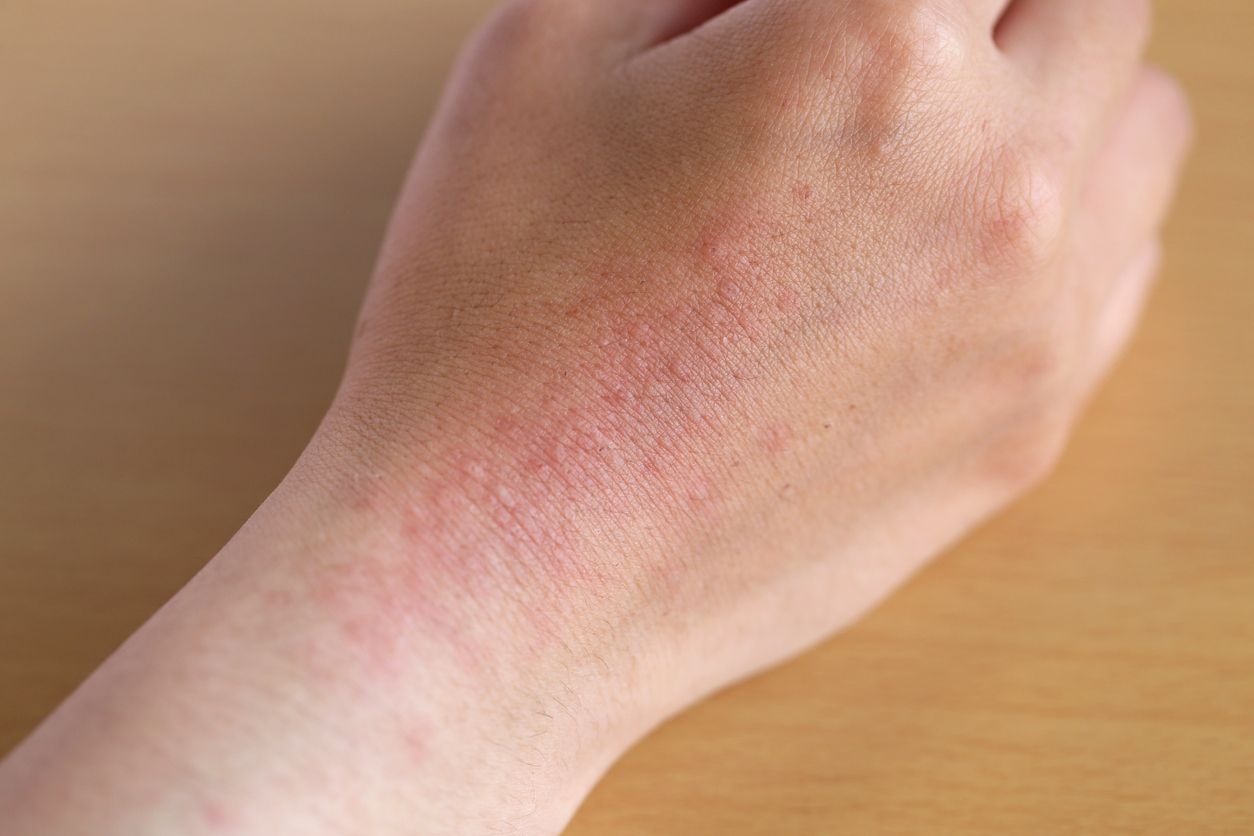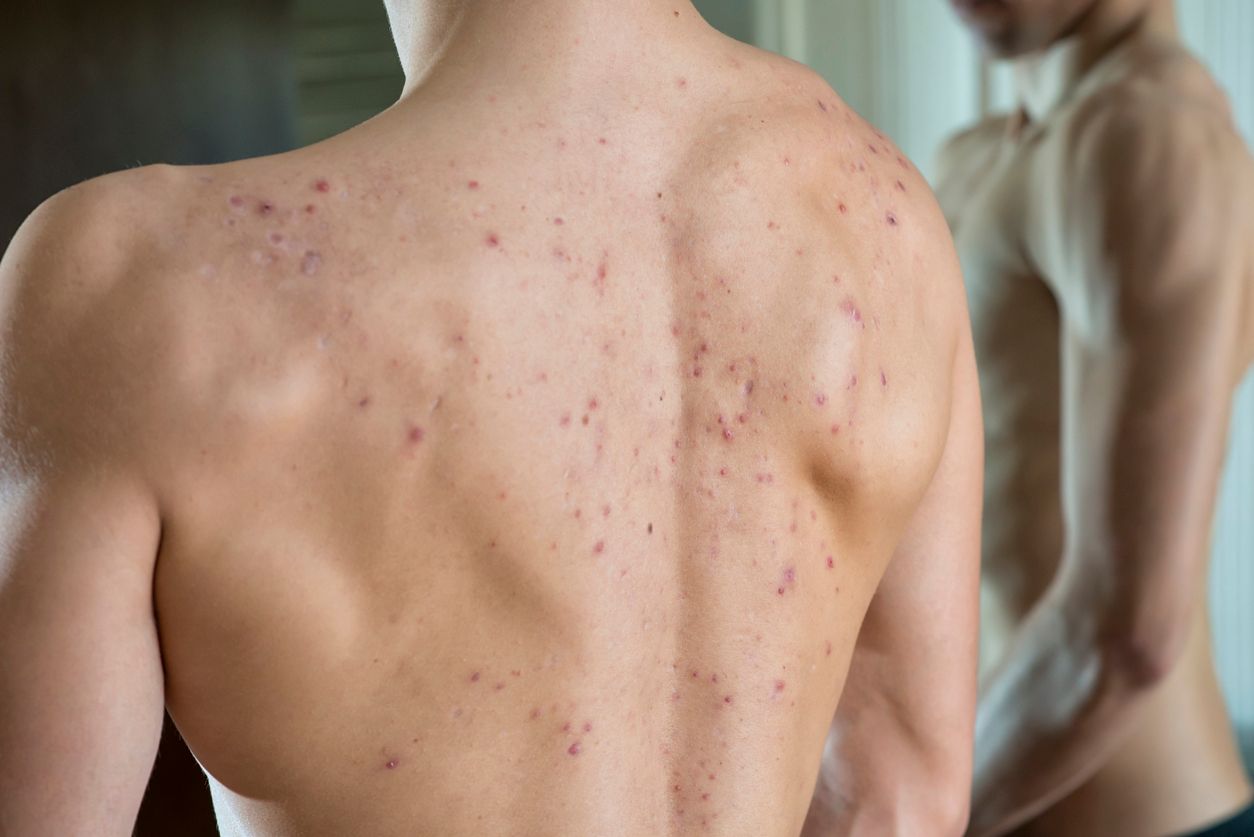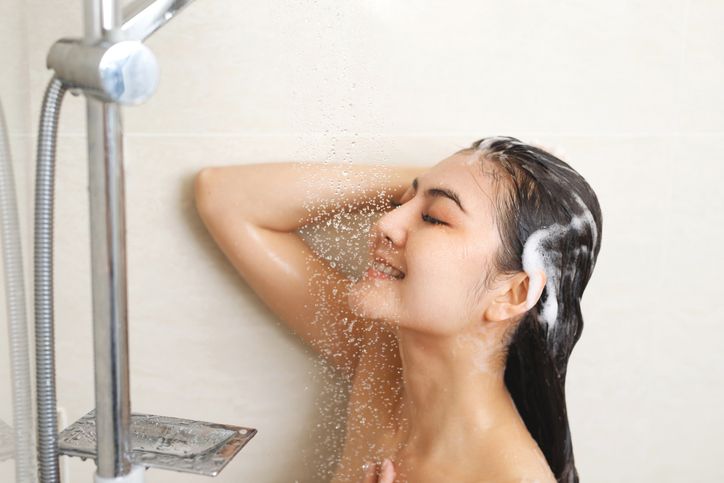
- Home
- Trend
- Weight Loss Strategies
- Acne Tips
- Hair Health Information
- Blemish Removal Tips
- Acne Scar Removal Tips
- Muscle Building Techniques
- Intimate Care Tips
- Postpartum Intimate Care
- Eye Bags Wiki
- Tips for Face Slimming
- Secret of Permanent Hair Removal
- Breast Enlargement Tips
- Cure to Snoring
- Marionette Lines
- Skin-Tightening Secrets
Is it normal for itchy skin to also feel dry and bumpy? If you're experiencing persistent itchiness along with raised bumps on the skin, your skin may be showing signs of imbalance—often due to disrupted oil and moisture levels. These seemingly minor symptoms could be your body’s way of waving a red flag, as sluggish metabolism and suboptimal health often trigger such issues. Itchiness is typically linked to both external irritants and internal imbalances. In this post, we’ll break down 4 common causes and their symptoms—and stay tuned for a special bonus at the end!
Can’t Stop Scratching? The 4 Main Culprits Behind Itchy, Bumpy Skin

1. Allergic Reactions:
Skin allergies are often triggered by external irritants or internal sensitivities.
2. Contact Dermatitis:
A common issue among beauty lovers—be cautious of ingredients in cosmetics and skincare products. Harsh substances or metals in jewelry can cause allergic reactions, resulting in redness, itchiness, and small bumps.
Acute Urticaria (Hives):
Triggered by foods (e.g. seafood, nuts), medications, or environmental allergens (e.g. dust mites, pollen), hives appear as red, raised welts that are extremely itchy. In some cases, swelling around the lips ("sausage lips") may occur, but such vascular reactions usually subside quickly.
3. Skin Infections:
Folliculitis:
When hair follicles become inflamed due to bacterial infection, red bumps may appear—sometimes topped with pus. Factors like heat, shaving, or tight, non-breathable clothing increase the risk.
Viral Infections:
Though less common, certain viruses like molluscum contagiosum can cause multiple skin bumps.
4. Skin Conditions:
Eczema/Atopic Dermatitis:
Typically chronic and recurring, this condition causes dryness, inflammation, itching, and the appearance of red bumps or blisters.
Milia:
Often found in newborns and young adults, milia are white or yellowish bumps formed by keratin buildup at hair follicle openings.
Insect Bites:
Bites from mosquitoes, fleas, or mites cause red, itchy, swollen bumps.
Other Causes:
Dry Skin (Xerotic Eczema):
When skin becomes too dry, the barrier weakens, making it more prone to irritation, itching, and flaking.
Immune Reactions:
Chronic hives are often tied to immune system imbalances, which vary by individual. Some may even develop shingles ("skin snake") later in life if they had chickenpox as a child—the virus remains dormant and can reactivate.
Stress:
Yes, stress can make you itchy! Neurological misfires caused by anxiety may send false signals, creating an itchy sensation and triggering scratching that damages the skin barrier.
Symptom Breakdown by Condition: 7 Common Skin Conditions to Know

Symptom 1. Contact Dermatitis
• Redness, itching, small bumps, blisters
• May also involve tight, swollen patches
Symptom 2. Acute/Chronic Urticaria (Hives)
• Red, raised welts
• Extremely itchy
• May form large patches
Symptom 3. Folliculitis
• Common on the scalp
• Red bumps, some with pus
• Dense clusters that resemble a rash
Symptom 4. Eczema / Atopic Dermatitis
• Dry, itchy skin
• Small bumps, blisters, redness
Symptom 5. Milia
• Small white or yellowish granules
• Not painful or itchy, but noticeable to the touch
Symptom 6. Mosquito Bites
• Raised bumps with redness and itchiness
• Sometimes form noticeable red welts
Symptom 7. Xerotic (Dry) Eczema
• Rough, dry, flaky skin
• Itchiness and minor inflammation or scratch marks
免費體驗
Acne Treatment
1 Minute Self-Registration
Date should not be before minimal date
Itching Like Crazy? 7 Key Tips to Soothe Itchy, Bumpy Skin
Tip 1: Cold Compress
Apply an ice pack or a damp towel to the itchy area for 15–20 minutes. It temporarily numbs nerve endings and provides quick relief—perfect for sudden flare-ups.
Tip 2: Wet Wraps
Soak clean gauze or cotton in cold water and place it on itchy areas to calm inflammation and dryness, lower skin temperature, and reduce irritation.
Tip 3: Anti-Itch Ointments
Ask a pharmacist or doctor for suitable creams. These may include steroids (like hydrocortisone) or non-steroid options (like urea, camphor, or menthol).
Note: Steroid creams should not be used long-term—consult your doctor for guidance.
Tip 4: Oral Medication
For recurring or widespread itching, or if it disrupts sleep, doctors may prescribe antihistamines to suppress allergic reactions.
• First-generation: e.g. chlorpheniramine (may cause drowsiness)
• Second-generation: e.g. cetirizine, fexofenadine (less sedating)
In more severe cases, short-term steroids or immune-modulating drugs may be used.
Tip 5: Moisturize Regularly
• Use fragrance-free, gentle moisturizers like lotion, cream, or petroleum jelly.
• Apply right after bathing while skin is still damp to lock in moisture.
• Moisturize 2–3 times daily, focusing on itchy or dry areas.
Tip 6: Minimize Irritants
• Avoid hot showers, which strip moisture and worsen itchiness.
• Wear loose, breathable clothing.
• Refrain from scratching—this can cause wounds and infections.
• Reduce exposure to irritants such as makeup, skincare products, detergents, and wool fabrics.
Tip 7: Adjust Your Diet
• Avoid spicy foods and known allergens (like seafood and nuts).
• Eat more foods rich in vitamins A, C, E, zinc, and omega-3s to boost skin immunity and reduce inflammation.
Seek professional help if:
1. Symptoms interfere with sleep, work, or daily life
2. Home remedies don’t help, or symptoms worsen
3. Signs of infection appear (redness, pus, fever)
4. Affected area spreads
5. You’re unsure of the cause or suspect a serious condition
5 Habits to Prevent Itchy, Bumpy Skin—Say Goodbye to the Itch for Good!
1. Keep Skin Clean and Moisturized:
Bathe with warm water and mild cleansers daily, and apply moisturizer right after.
2. Avoid Known Allergens:
Know your triggers and stay away from them as much as possible.
3. Maintain a Healthy Lifestyle:
Balanced meals, regular sleep, and moderate exercise help strengthen skin resilience.
4. Eat a Balanced Diet:
Ensure you're getting enough vitamins, minerals, and hydration for optimal skin health.
5. Monitor Skin Regularly:
Visit a doctor promptly if you notice any abnormalities.
While these habits are great for soothing and preventing skin issues, they can be hard to stick with—especially for busy Hongkongers juggling long hours and stressful jobs. If you want an easier way to maintain clear, healthy skin, consider aesthetic medical treatments like the Acne Treatment, which can help you bid farewell to breakouts and reclaim your glow!
Top Pick: Perfect Medical’s Acne Treatment—Your Go-To for Clear, Smooth, Itch-Free Skin!
Skip the hassle of pinpointing causes or visiting dermatologists. The Perfect Medical Acne Break-Up Treatment targets suboptimal skin health conditions—especially for those suffering from acne, dark spots, blackheads, whiteheads, enlarged pores, dehydration, or dullness.
With years of experience in Hong Kong’s aesthetic industry, Perfect Medical uses advanced dual-spiral vacuum technology and gentle dermabrasion to remove dead skin and unclog pores. Their proprietary formula purifies the skin and stimulates collagen production from within. The treatment hydrates, controls oil, and stabilizes skin, helping you break the cycle of recurring skin problems.
Sign up now and enjoy:
• A professional skin analysis
• The Perfect Medical Acne Break-Up Treatment
免費體驗
Acne Treatment
1 Minute Self-Registration
Date should not be before minimal date
FAQ

Why is my skin itchy out of nowhere?
If you haven’t come into contact with any allergens, the itchiness could be triggered by an abnormal immune response or stress.
Is dermatitis considered a disease?
Yes. Dermatitis is a skin condition that can be acute (short-term and treatable) or chronic (requiring longer recovery).
Are hives and eczema the same?
No. Hives cause welts, swelling, and blotchy patches, while eczema usually presents with redness, bumps, and blisters.
Is angioedema an allergic reaction?
Yes. Angioedema is a type of allergic reaction causing swelling in areas like the lips, eyelids, tongue, throat, or limbs—sometimes accompanied by itching.
Is facial eczema atopic dermatitis or contact dermatitis?
It can be either—this depends on what triggers the condition in the individual.








